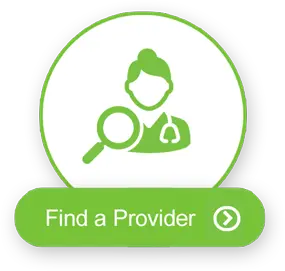“When I was 27, I felt bad all the time,” writes Joanna Goddard on the popular Cup of Jo blog.
She describes her initial experience with anxiety in detail.
“Every morning, I’d wake up with hot gulps of anxiety, as if I were drinking boiling tea,” she writes. “Then I would feel panicky all day: if a car honked, I would jump; if my boss shouted, I would cry in the bathroom. Friends always seemed vaguely mad at me, although whenever I asked them they insisted they weren’t.”
“At night, I’d lie awake, staring at the ceiling, my mind one big scribble,” she writes.
At a co-worker’s suggestion, she decided to ask a doctor about anti-anxiety medication. She found a psychiatrist through her work insurance and told her what she was experiencing. The doctor suggested she try an anti-anxiety medication to see how she felt.
“That moment changed my life,” Joanna says.
If you recognize these symptoms, and have been thinking about asking a doctor about anxiety medication, here are some points to consider.
What you need to know about anxiety disorders before consulting a doctor
Feeling worried in small doses is a natural part of life. It may even be helpful in certain situations. However, it’s important to understand when those feelings tip into unhelpful territory – like anxiety.
“Anxiety is a normal response to stress,” says Jody Glance, M.D., an assistant professor of psychiatry at the University of Pittsburgh, in a TODAY article. “If we didn’t have any anxiety, we would be less motivated to run away from bears,” she says.
Yet, feeling anxious about a particular situation is different from anxiety disorders.
“…anxiety disorders involve a persistent worry that negatively impacts a person’s life. About 2.7 percent of U.S. adults will experience generalized anxiety disorder in a given year and 5.7 percent will experience it within their lifetimes, according to the National Institute of Mental Health,” according to the article. “When anxiety makes it difficult for people to accomplish daily tasks, that’s a sign it has surpassed normal worrying.”
Learning more about the signs of anxiety can help you recognize when you may need to seek help. The article suggests the following symptoms may indicate an anxiety disorder:
- “Rumination that has no end or solution
- Alcohol or drug use to self-medicate
- Worry that interferes with daily activities
- Nausea
- Headaches
- Restlessness
- Thoughts that the worst can happen
- Heart palpitations
- Shortness of breath”
Who should you consult about anti-anxiety medication – psychiatrist vs. primary care physician?
Blogger Joanna Goddard consulted a psychiatrist for her anxiety treatment, but that’s not the only option. You can talk to several different types of clinicians about anti-anxiety medication.
“You may start by seeing your primary care provider to find out if your anxiety could be related to your physical health. He or she can check for signs of an underlying medical condition that may need treatment,” according to an article on the Mayo Clinic website. “However, you may need to see a mental health specialist if you have severe anxiety. A psychiatrist is a medical doctor who specializes in diagnosing and treating mental health conditions. A psychologist and certain other mental health professionals can diagnose anxiety and provide counseling (psychotherapy).”
Psychotherapy (also known as talk therapy or psychological counseling) and medication, or a combination of the two, are the two main anxiety treatments, according to the website.
“A psychiatrist can provide both psychotherapy and medication to treat your anxiety disorder,” according to a Healthline article.
In some offices, you may also be seen by a psychiatric nurse practitioner.
“Psychiatric nurse practitioners provide primary mental health care to people seeking treatment for a variety of mental health conditions. Psychiatric nurse practitioners are able to diagnose and treat people with mental illnesses, including prescribe medications. As fewer medical students go into psychiatry, more and more psychiatric care is being assumed by psychiatric nurse practitioners,” according to the Healthline article.
Anti-anxiety medications doctors might prescribe
Different types of anxiety disorders may cause you to feel different symptoms. Some types include generalized anxiety disorder, panic disorder, separation anxiety disorder, anxiety disorder due to a medical condition, and more, according to the Mayo Clinic website.
The kind of medication a clinician may prescribe will depend on the type of anxiety disorder you have and if you have other mental or physical health issues.
“Anti-anxiety medication and antidepressants are not a magic button, and they’re not for everyone,” says Lina Perl, a clinical therapist in Manhattan in the Cup of Jo blog. “But if your nervous system is overly vigilant and turned up to 11, medication can take the edge off. It can help you get to the point where you can take better care of yourself — with sleep, exercise and a larger regimen of care – and then it’s a snowball rolling down a hill.”
However, it is important to understand and talk to your doctor about the benefits, risks, and possible side effects of medications that may be used to treat anxiety.
“Anti-anxiety medications have physical effects on the brain and the body, which can help reduce the symptoms of anxiety, such as worry, fear, and panic attacks,” according to a Verywell Mind article. Here are some types of medications that are prescribed in anxiety treatment:
Selective serotonin reuptake inhibitors (SSRIs)
“Often used as a first-line treatment for anxiety disorders, selective serotonin reuptake inhibitors (SSRIs) include medications like Paxil (paroxetine), Prozac (fluoxetine), Zoloft (sertraline) and Lexapro (escitalopram). SSRIs are considered antidepressants and they increase the amount of serotonin in the brain, which helps improve mood,” according to the Verywell Mind article.
Benzodiazepines
“Benzodiazepines such as Valium (diazepam), Xanax (alprazolam), Klonopin (clonazepam) and Ativan (lorazepam) are sometimes used to treat anxiety for a short-term period. They are used for generalized anxiety disorder and may be used as a second-line treatment for panic disorder and social anxiety disorder, with antidepressants being the front-line choices,” according to the article.
Beta blockers
“Beta blockers are used to control heart disease. They help reduce your heart rate and blood pressure by blocking the effects of epinephrine, a stimulant that your body naturally produces. Beta-blockers can help control trembling, sweating, and other physical symptoms of anxiety.
They may be prescribed for the short term when used for anxiety. Sectral (acebutolol), Tenormin (atenolol), Inderal LA (propranolol), are a few beta-blockers.”
Other types of medications doctors might prescribe include serotonin-norepinephrine reuptake inhibitors (SNRIs), tricyclic antidepressants or buspirone, according to the Verywell Mind article.
How to consult with your doctor when starting anti-anxiety medication
Before starting any medication, talk honestly with your doctor about the problems you’re facing and any issues that could affect your treatment. Writing things down ahead of time can help.
According to the Mayo Clinic website, before your appointment, you should make a list of:
- “Your anxiety symptoms. Note when they occur, whether anything seems to make them better or worse, and how much they affect your day-to-day activities and interactions.
- What causes you stress. Include any major life changes or stressful events you’ve dealt with recently. Also note any traumatic experiences you’ve had in the past or as a child.
- Any family history of mental health problems. Note if your parents, grandparents, siblings or children have struggled with any mental health problems.
- Any other health problems you have. Include both physical conditions and mental health issues.
- All medications you’re taking. Include any medications, vitamins, herbs or other supplements, and the doses.
- Questions to ask your doctor to make the most of your appointment.”
“It’s easy to become overwhelmed or forget questions you may have when sitting with your doctor,” says Nikole Benders-Hadi, clinical psychiatrist at Doctor On Demand, in a Well + Good article. “When you write down questions in advance, you’re more likely to get all your concerns addressed.”
“When it comes to decisions about one’s health, which includes decisions about taking prescription medications, no question is ever too small or silly,” according to licensed psychologist Nicole Beurkens, Ph.D., in the article.
In the Well + Good article, some questions that experts had recommended asking include:
- What improvement looks like while on the medication
- The medications’ side effects
- If and how to stop taking the medication
When is the right time to ask your doctor about anxiety meds?
It’s always appropriate to talk to a doctor when you’re worried about a physical or mental health concern. Starting that conversation will lead to treatment decisions, which may or may not include medication.
“If anxiety interferes with your daily life – whatever that might look like to you – that’s reason enough to see a mental health professional,” according to a SELF article.
“When your world starts to become limited because of anxiety, that is a good signal that it’s time to seek treatment,” says Monique Reynolds, Ph.D., licensed clinical psychologist at the Center for Anxiety & Behavioral Change, in the article. “What is it doing to your life, your relationships, your sleep, health, work, and ability to learn and pursue things that are important to you?”
While using an anti-anxiety medication is not always appropriate for everyone, starting medication has made a profound difference in some people’s lives. Joanna Goddard, for one, says she “would marry her anti-anxiety medication if she could.”
“If you feel you may benefit from it, but are holding back only because of nerves or stigma,” she says, “maybe consider talking to a doctor.”

https://genesight.com/blog/patient/do-only-women-suffer-from-anxiety-disorders-2/
https://genesight.com/blog/anxiety-for-seniors/
https://genesight.com/blog/famous-people-with-anxiety/
Our articles are for informational purposes only and are reviewed by our Medical Information team, which includes PharmDs, MDs, and PhDs. Do not make any changes to your current medications or dosing without consulting your healthcare provider.
The GeneSight test must be ordered by and used only in consultation with a healthcare provider who can prescribe medications. As with all genetic tests, the GeneSight test results have limitations and do not constitute medical advice. The test results are designed to be just one part of a larger, complete patient assessment, which would include proper diagnosis and consideration of your medical history, other medications you may be taking, your family history, and other factors.
If you are a healthcare provider and interested in learning more about the GeneSight test, please contact us at 855.891.9415. If you are a patient, please talk with your doctor to see if the GeneSight test may be helpful.








